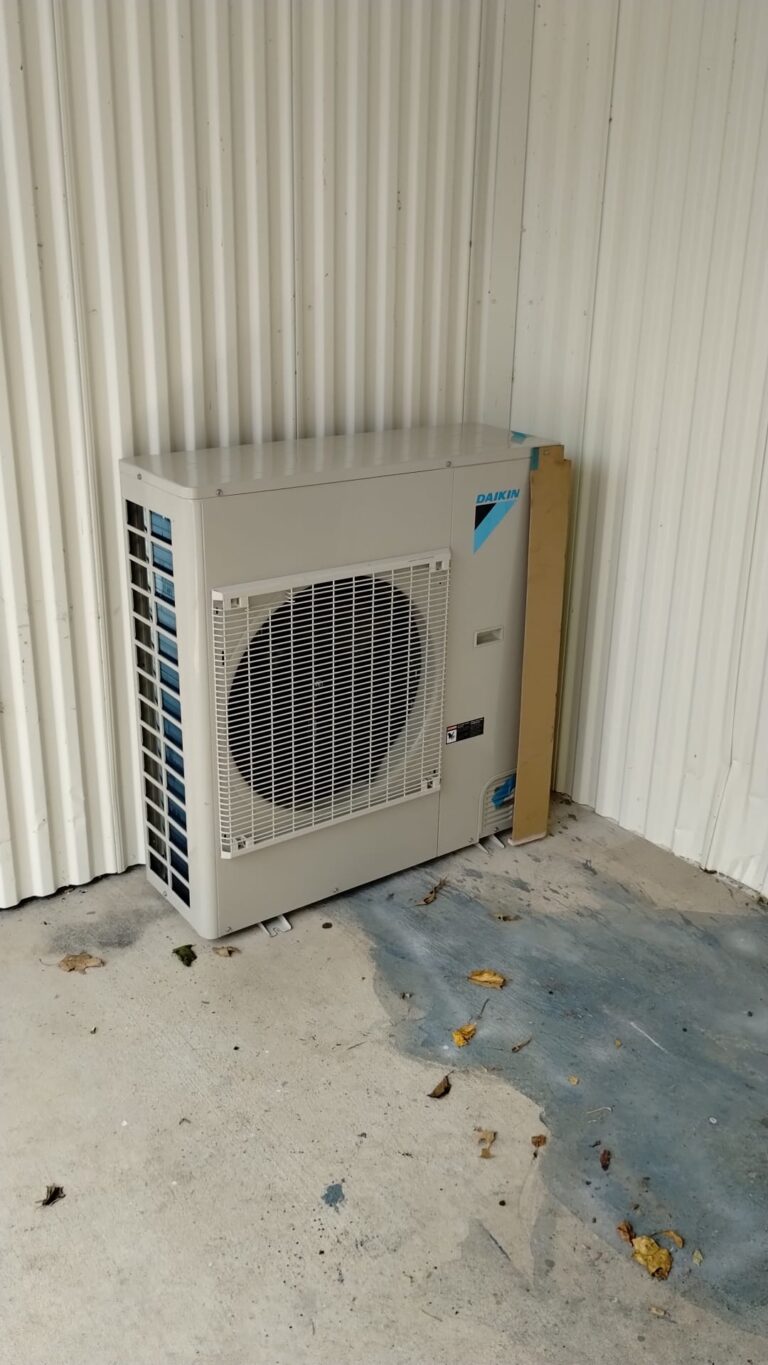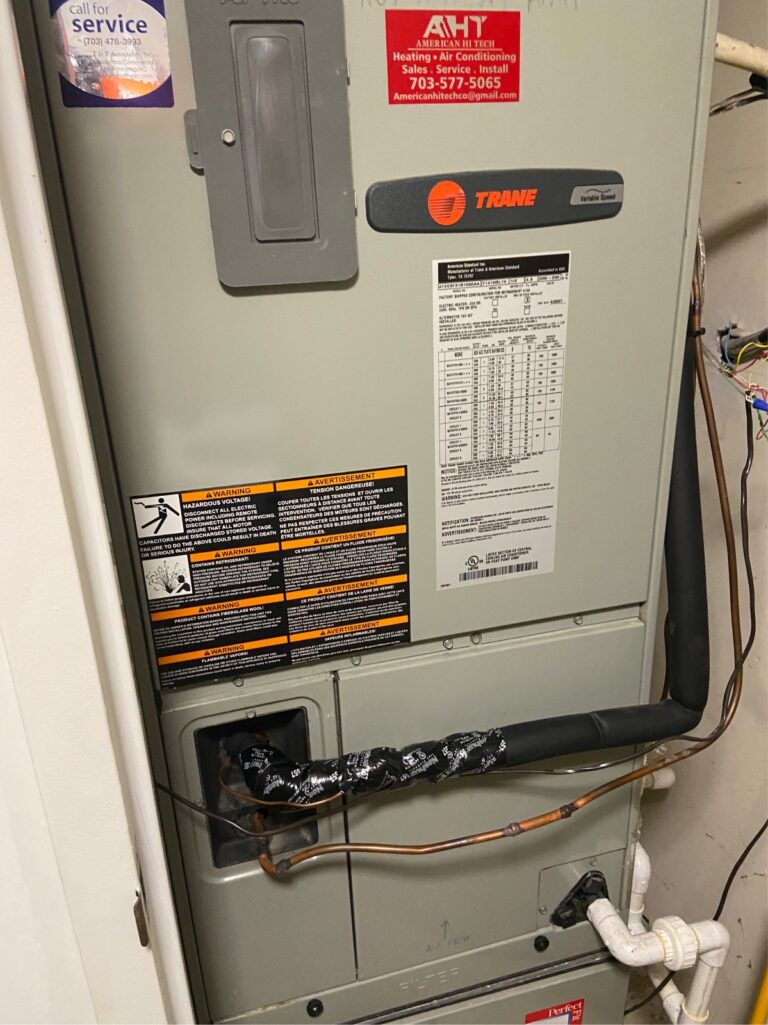How Much to Install a Water Heater
The key to getting hot water again for everyday hygiene, washing, and cooking is to install a water heater as soon as the old one breaks. Our guide outlines frequent expenses and indicators it’s time for replacement. The average cost of this project is $906 to $3,910, but the type of heater, tank size, and other factors will alter your final price.
All cost figures in this article, unless otherwise specified, are derived from The Cool Breeze Services 2024 reports.
The Cost of Water Heater Installation
While tankless water heaters range in price from $1,833 to $3,910, tank water heater installation costs, on average, fall between the $906 and $1,583 range nationwide for both the unit and labor. The kind of heater, tank capacity, and other labor needed will all affect how much installing a water heater will cost.
Cost by Type
The kind of fuel used in the water heater is one of the most important cost elements influencing an installation. Tank and tankless water heaters with varying fuel types have various national average costs, which are listed below. A higher installation cost is to be expected for tankless water heaters.

Electric ($550 to $2,000):
Electric water heaters that run on electricity ($550 to $2,000) heat water only when needed. Due to their quieter operation and lack of need for direct vent installation, electric water heaters are less expensive than other varieties. Based on your current electrical system, you might need to pay for additional electrical work.
Propane ($600 to $3,500):
Propane water heaters (from $600 to $3,500) are dependable in locations with erratic electricity supplies. The environmentally friendly nature of propane fuel renders these systems eco-friendly. Propane units are less crowded and provide flexible installation because of their on-demand fuel source and design.
Gas ($700 to $4,500):
Gas water heaters (from $700 to $4,500) are a great option for homes looking for a cost-effective and eco-friendly way to heat water. Large households with high water consumption can benefit greatly from gas models, particularly tankless models, which typically have a higher heating capacity than electric units. The cost of installing a new gas line may be incurred, contingent on the state of your existing gas lines.
Oil ($1,000 to $3,000):
Oil water heaters are particularly suitable for areas where other fuel sources, such as propane, aren’t readily available. This system also requires a storage tank of home heating oil to function.
Cost by Size
The size of the water heater represents the second most important cost factor. Gallon capacities and gallons per minute are used to measure the performance of water heaters. The typical cost ranges for different sizes including labor and materials, are as follows:
- Thirty-gallon fuel tank: $300 to $1,000.
- $40-gallon fuel tank: $350 to $1,600.
- $2,500 to $400 for a 50-gallon tank.
- From $900 to $3,500 for a 75-gallon tank.
- Cost of an 80-gallon tank: $1,000 to $4,000.
Fuel Type
Though indirect, solar-powered, propane-powered, high-efficiency, and hybrid heat pump systems are also options for homeowners, gas or electric water heaters are the most popular. Both an electrical coil and a gas pilot light are used to provide heat.
Long-term cost-effectiveness is often achieved by choosing natural gas over electricity, even though natural gas water heaters are not particularly energy-efficient and are rather expensive. With their lack of venting requirements, electric water heaters might be ideal for cramped quarters or tiny apartments. On how to select the best water heater and which fuel type is most appropriate for a home, a professional installer can offer guidance.
Venting System
There are two types of water heater venting: power venting and direct venting. Through a chimney or exhaust pipe above the unit, a direct vent heater releases waste gases.
Gases from the house are forced out by a fan or blower on a power vent heater. The installation of this type of heater will cost an additional $300 to $500 in wiring and electrical work, bringing the total cost over direct venting options to an average of $300 to $6,000.
Labor and Permits
A typical replacement water heater requires $150 to $450 in labor costs to install; however, switching from a tank-based water heater to a tankless model can cost up to $2,500. Fees may differ based on the type of specialist needed. Depending on the situation, hiring a plumber or electrician can cost anywhere from $45 to $200 per hour.
Homeowners can pull the permit themselves or have the contractor do it and have the price added to the overall bill. If a natural gas line needs to be installed, the permit for this will cost an additional $50 to $300.
High points
An average of $1,293 is spent nationwide on water heater replacements, which typically cost between $874 and $1,765.
The brand, size, fuel type, location of the system, labor and permit costs, and geographic location are among the factors that affect the cost of replacing a water heater. Other factors include venting system type and style.
If your water heater is old and making a lot of noise, leaks, taste metallic, or has rust, silt, or cloudiness, it might be time to replace it. Your energy costs may also be higher.
For the sake of safety and code compliance, it is usually best to leave this project to a professional who installs hot water heaters.
Factors in Calculating Water Heater Replacement Cost
Different installations are made for different replacement water heaters. Many cost considerations that may affect the amount homeowners pay for this project should be kept in mind. The type of water heater, its size, fuel type, brand, venting system, installation location, labor and permit requirements, and geographic location are some of these.
Type
Water heaters come in two main styles: storage tank and tankless water heaters. More than 90 percent of water heaters installed in the United States are tank-style heaters. A storage tank water heater stores hot water in a large tank that typically holds anywhere from 30 to 80 gallons. This type of water heater costs $1,000 on average and can run on gas, propane, electricity, or solar power. Because they are always on, they are not as efficient as tankless units.
On demand hot water is produced by tankless water heaters, which typically cost $2,500 and heat water as it enters the unit. More compact than tank-style units, these water heaters can be powered by electricity or gas. Their suitability for homes in colder climates is questionable, and multiple units might be required for larger homes to have enough hot water.
Size
The size of the hot water heater affects how much a homeowner will have to pay to replace it. A 40-gallon tank is the most typical size for tank-style heaters, though they can store up to 100 gallons. For a two-person household, a 40-gallon tank will do, but a 60- to 80-gallon tank might be more appropriate if there are more people living there than 5.
Fuel Type
Though indirect, solar-powered, propane-powered, high-efficiency, and hybrid heat pump systems are also options for homeowners, gas or electric water heaters are the most popular. Both an electrical coil and a gas pilot light are used to provide heat.
Long-term cost-effectiveness is often achieved by choosing natural gas over electricity, even though natural gas water heaters are not particularly energy-efficient and are rather expensive. With their lack of venting requirements, electric water heaters might be ideal for cramped quarters or tiny apartments. On how to select the best water heater and which fuel type is most appropriate for a home, a professional installer can offer guidance.
Brand
The brand selected can also affect the cost of a replacement water heater. As is the case with other products, certain brands are more costly than others.
Cost Per Unit for a Water Heater Brand Average
- A. O. Smith: $400–$3,500.
- $400–$3,000 is Bradford White.
- Kenmore: from $350 to $1,000.
- 400$ to 2,300$ Rheem.
- $350-$1,500 for a Whirlpool.
Geographic Location
Fuel prices and water heater replacement expenses are influenced by the home’s geographic location. Heater water temperature and energy consumption are both influenced by climate. More energy is required to bring the water’s temperature to the desired level the colder it is when it first enters the warmer. When determining which kind of water heater would be best for their house, homeowners should also take the cost of fuel into account.
Location Average Cost (Materials and Labor)
- $1,300 Austin, TX
- Chicago, Illinois: $1,600
- In Dallas, Texas, $1,400
- $1,900 in Los Angeles, CA
- 1,800 dollars in New York City
- $1,500 in Philadelphia, PA
- $ 1,300 in Phoenix, AZ
- San Diego, California $15,900
Expansion Tank Installation
For water that expands when it heats up, an expansion tank offers more capacity. An expansion tank must be installed when replacing an outdated water heater, according to many contemporary building codes. The building pressure caused by the heating water can cause pipes to burst. Between $40 and $350 can be spent on these tanks.
Additional Work
The installation might need more work to be finished, depending on the kind of water heater and where it is located. In the event that a homeowner chooses to switch fuel types, for instance, new gas or electrical lines must be installed.
Hybrid Heat Pump
How does a heat pump work? The process by which a hybrid heat pump water heater transfers heat to water through coils and a compressor is drawing heat from the surrounding air. After labor and materials, the average cost of this kind of water heater ranges from $1,200 to $3,500. Energy-efficient heat pump water heaters are low-cost, but hybrid heat pump water heaters are pricey, much like regular heat pumps. These units are also frequently large, so apartments and smaller houses are not advised to use them.
A Broken Water Heater?
Perhaps a replacement is overdue. Find local services that offer free, no-obligation project estimates.
FIND A PRO
Sludge frequently accumulates inside older water heater tanks, and corrosion often occurs within the unit. Around water heater fittings, Bruininga advises checking for calcification and rust. Hot water may appear murky, rust-colored, or grainy in this situation. If the issue still exists after maintenance, a replacement may be required. Occasionally, this can be resolved by having the water heater descaled.
Metallic-Tasting Water
Indicating that metal from the tank is corroding and seeping into the water is the taste of metallic water. Although descaleing the tank might solve the problem, it might be time to retire the old unit if the metallic taste persists shortly after maintenance.
Excessive Noise
A buildup of excess sediment that is striking the walls of the water heater tank before it enters the water supply is usually the cause of noises that a homeowner hears from their water heater, such as loud banging or knocking sounds. If not removed, sediment accumulation can eventually harm the water heater as well. Investigating odd water heater noises as soon as possible is advisable because water heater repair is significantly less expensive than replacement.
Leaking
One can detect the failure of a water heater by its leaks. Expansion can lead to the metal splitting, and years of heating and cooling gradually erode the device. A temporary fix for the leak might be feasible, but soon the water heater will probably need to be replaced.
Water Heater Installation: DIY vs. Hiring a Professional
Homeowners should leave this project to the professionals unless they are very experienced with plumbing, gas lines, and electrical work, despite the allure of searching online for “how to replace a water heater” and trying to do the installation themselves. Water heater installation is a job best left to the pros due to its extensive knowledge and demanding labor. To help install a tank heater correctly, it is imperative to comprehend all of the new plumbing code requirements.
Who maintains water heaters? For water heater installation or repairs, homeowners usually need to hire a plumber. Permits and inspections are required for water heater installations, and if something goes wrong, proper installation can become very expensive to update and clean up. The best water heater for the house can be recommended by a plumber, who also handles obtaining the permit and performs first-time, safe and accurate installation of a new water heater. Use one of the top plumbing services, such as Mr. Rooter or Roto-Rooter, to install the water heater when it’s time to replace it to ensure that the work is done correctly and in compliance with code.
Our Recommendation
Installing a water heater by a professional is advised. For peace of mind, you can fully benefit from any warranties or guarantees and ensure proper installation when you hire a professional plumber to install your water heater. Obtaining at least three plumbing quotes is advised so you can carefully compare them and determine which is the best fit for your needs and budget.







